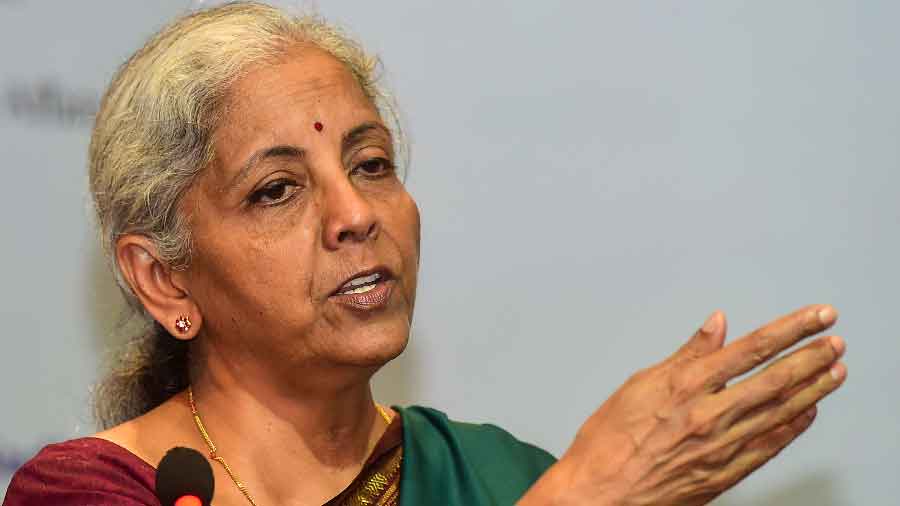
Tax gaps need to be addressed for ease of business
Nirmala Sitharaman has challenging task of giving feel-good message to individuals and businesses facing issues in ‘ease of doing business’
Dinesh Agarwal, Abhishek Sureka | TT | 23.01.23 : India Inc is gearing up for the last full budget of the present government to be tabled on February 1 ahead of the general elections in 2024. Finance minister Nirmala Sitharaman has a challenging task of giving a feel-good message to individuals as well as to businesses facing issues in ‘‘ease of doing business’’.
The initiatives led by the government towards the ‘‘Ease of doing business in India’’ are laudable. However, India Inc expects more from Budget 2023, in the form of necessary push for the economy towards the path of self-generating growth.
Here, we lay down some of the tax expectations around issues faced by businesses:
Rationalising tax
One of the key objectives of the framework of existing insolvency law was to revive stressed entities. The intent was to migrate the stressed industrial assets to a person who is capable to operate the same.
However, operationally, the industry has been facing challenges on account of lack of clarity with respect to tax matters and clarity on the following has been the long-standing demand of the industry:
Status of dues
Treating statutory / tax dues as secured creditors empowers authorities with preference in payout of dues of the corporate debtor in a resolution plan whereas treating the same as operational creditors may inflict significant loss of revenue to the government treasury. The judiciary in India is divided on the matter. In the absence of clarity on the matter, stressed companies with significant litigation / statutory dues find it difficult to attract lucrative bids in the resolution process.
In this regard, an amnesty scheme for such companies may be considered to balance the interest of tax authorities vis-à-vis other creditors. In any case, clarity should be brought to the matter to reduce litigation and provide impetus to bidders to acquire such assets.
Further, a commonly accepted proposition is that IBC overrides the provisions of income-tax law.
However, it is also interesting to note that pending any outstanding income-tax demand or ongoing income-tax proceedings, transfer of assets without a NOC from tax authorities may be treated as void under Section 281 of the Income-tax Act.
Whereas, in the event of an IBC acquisition, such NOC is practically difficult. Thus, the acquisition of shares or assets of a corporate debtor currently run the risk of being treated as void by the tax authorities at a future date. Exempting such acquisitions from these provisions would provide required clarity on the matter.
- Income-tax treatment of write-back of debts.
The corporate debtor on the acquisition of the assets in IBC process, typically, writes back the hair-cut on loans/ outstanding operating creditors settled.
In the absence of clarity, revenue authorities may seek to levy the tax on the corporate debtor on account of such write backs.
Clarity should be brought on the matter by exempting such writebacks from tax implications (both under normal provisions and MAT provisions).
This is because any such writebacks is a forced step to revive a stressed industrial unit. Such a compromise should not be construed as an income, in as much, to attract tax implications on an already stressed company.
- Exemption from specific anti avoidance provisions under section 56(2)(viib) and 56(2)(x) of the Income-tax Act.
Acquiring the shares of a closely held company at a price over face value attracts tax implications on such company, if such price exceeds the fair value of such shares computed in the prescribed manner.
On the contrary, if such price is less than the fair value of the shares computed in the prescribed manner, the difference attracts tax implications on the recipient of the shares.
The above interplay creates a pertinent issue for a bidder interested in acquiring a stressed asset. A NCLT approved resolution plan in case of IBC proceedings should be kept outside the purview of these provisions.
- Fresh life for unexpired business losses of the corporate debtor.
For closely held companies, a change in shareholding in excess of 49 per cent results in the lapse of unexpired business losses.
Acquisitions pursuant to resolution plan under IBC have been kept outside the purview of these provisions.
However, an entity acquired under IBC usually has long standing losses which may be nearing expiry. Thus, the objective of such carve-out is eventually not completely experienced. Given the above, such losses should be accorded with a fresh life of eighty years after a change in shareholding.
Incentivising start-ups
Startups incorporated within 31 March 2023 are eligible for tax holiday under the Income-tax Act. The cut-off dates should be further extended to accommodate more upcoming new-age startups.
Further, turnover threshold for start-ups eligible for induction is currently Rs 100crore. This threshold should be increased to Rs 250 crore at the least.

0 Response to "Tax gaps need to be addressed for ease of business"
Post a Comment
Disclaimer Note:
The views expressed in the articles published here are solely those of the author and do not necessarily reflect the official policy, position, or perspective of Kalimpong News or KalimNews. Kalimpong News and KalimNews disclaim all liability for the published or posted articles, news, and information and assume no responsibility for the accuracy or validity of the content.
Kalimpong News is a non-profit online news platform managed by KalimNews and operated under the Kalimpong Press Club.
Comment Policy:
We encourage respectful and constructive discussions. Please ensure decency while commenting and register with your email ID to participate.
Note: only a member of this blog may post a comment.